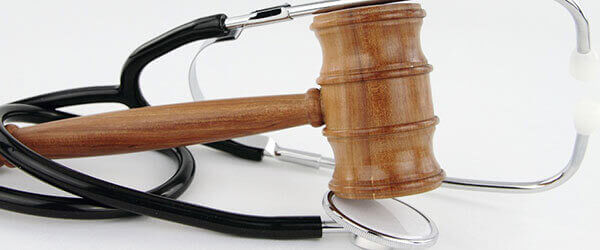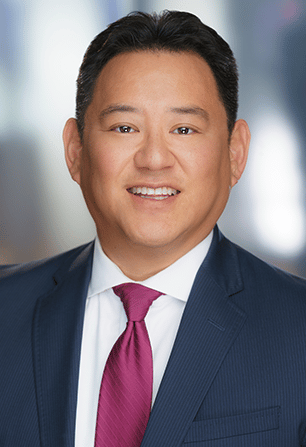Personal Injury Lawyers in California Answer Your Questions
If you have just had an accident and you’re hurt there is a lot of concerns that you have. You’re hurting physically, emotionally, and mentally. Your injury can affect your lifestyle, your career, and your family. It may be tempting to take whatever payout the insurance companies are offering, but the fact is that the insurance adjusters are not looking out for your best interest. Their goal is simple; to minimize the amount of compensation you receive regardless of the true cost your accident will cost you and your family. You should have an attorney represent your case because they know how to fight and negotiate the legal system in order to get you the highest possible compensation.
A lot of people think it’s all about gaming the system or getting a high payout, it’s not. A lot of people don’t realize at the time of their injuries how much of an ongoing impact their injuries will have on their lives. There are a lot of unexpected costs that can incur over time, and your injuries can become more complicated over time. That’s why it’s important to get as much compensation as you can, because you need to make sure you and your family are covered when unexpected problems arise in the future. How to find a Personal Injury Attorney that’s Right for You
There are a lot of personal injury attorneys out there that will try to get a quick pay-out and move your case through their pipeline as quickly as possible. It’s very important that you find a personal injury attorney that has the resources to fight your case for the maximum compensation possible.
Here are some tips to help you find the right personal injury attorney for you.
1. Find an attorney that specializes in personal injury
It’s very important to find an attorney that only handles personal injury cases. There are a lot of attorneys out there that will try to take in any case they can. An attorney that specializes in personal injury will know know how to negotiate the highest possible compensation for your case. A good personal injury attorney will also have extra services that will assist you while your case is in litigation such as: car rentals, doctors that won’t charge you upfront, and they can also give you cash up-front to help you with your day to day expenses.
Also, here you can find out about medical terms for personal injury victims.
2. Find an attorney that is empathetic
Finding an attorney who is compassionate and empathetic to your needs is hard to find. A lot of attorneys are just looking for a payout. You should make sure that when you speak with the attorney that they ask you what you need and how they can help you. A good personal injury attorney won’t make you feel rushed or pressure you into working with them. A good personal injury attorney got into this field of law because they truly feel passionate about helping people out that have been injured. The legal system can be a very scary place to try to navigate yourself so having an attorney that will help you fight the system will be very advantageous to you.
3. Check the personal injury attorney’s online reviews
A lot of attorneys have a silver tongue and can make you feel like they are the best option for you. Make sure that you check out their reviews online and see what other people have to say about working with that attorney. A good personal injury attorney will have raving reviews. Be skeptical of attorneys that have bad reviews or no reviews at all. Read each review carefully and see if their case is similar to your case.
4. Check out their previous settlements
Ask any personal injury attorney you speak with what their recent settlements have been. Also look at the the circumstances of these cases and see if they are similar to yours. Even within personal injury there are a lot of different specialties such as motorcycle accidents, auto accidents, slip and fall, boating accidents etc. If you have gotten into an auto accident and the attorney’s recent settlements have all been slip and falls then maybe you should find an attorney that has more successful cases that are similar to yours.
I hope that this helps you on your search to find a good personal injury attorney to represent you. I know that this is very difficult times, and this isn’t something you are used to doing but taking the time to do your research and finding the right attorney can make a huge different.
Common Types of Personal Injury Compensation
The legal term for the compensation awarded to the injured person in a personal injury case is ‘damages’. As any experienced personal injury lawyer will tell you, there are two broad categories of damages: compensatory damages and punitive damages.
What Are Compensatory Damages?
Compensatory damages are awarded to the injured victim to reimburse or compensate for the harm he or she has suffered. These damages are awarded in all kinds of personal injury cases, including auto accidents, slip and fall cases, and mass torts. There are basically three types of compensatory damages: special compensatory damages, general compensatory damages and wrongful death damages.
- Special compensatory damages:
Special compensatory damages compensate for the monetary expenses incurred as a result of an injury. These damages cover medical bills, loss of past and future earnings, costs of past and future medical care, household expenses, and more. In fact, almost any expense incurred because of the injury can be included in this type of damage. However, it doesn’t mean that the victim will automatically receive all these damages.
Since each individual has his or her own unique circumstances, damages are different for different individuals, depending on the severity of the injury, the circumstances leading to the injury, lost wages/salary, future earning capacity, costs of ongoing and future medical care, and other factors.
While the victim can seek any amount he or she thinks is appropriate, the actual amount is determined by negotiations between the parties involved (usually the victim’s lawyer and the liable party’s insurance adjuster) or by the court in case of a lawsuit.
- General compensatory damages:
General compensatory damages are awarded to an injured person to compensate for the harms that cannot be measured exactly in monetary terms. They cover pain and suffering, mental anguish and loss of consortium or companionship.
How is the monetary value of these calculated? In general, the longer the period of recovery and the stronger the medication prescribed, the greater will be the injured person’s pain and suffering, according to insurance companies. When calculating the monetary value of pain and injuries, the insurance adjusters take in account seriousness of the injury, liability of the victim (when the victim is partially at fault), future prognosis (whether the victim requires extended treatment and therapy) and history of verdicts in similar cases.
Again, the injured person may seek any amount he or she thinks is appropriate, but the actual amount is decided either by negotiations between the parties involved or by the court.
- Wrongful death damages:
Wrongful death damages are awarded to the surviving family and loved ones of a person killed in an auto accident, slip and fall accident or other accident. These damages cover funeral and burial expenses, emotional distress of surviving family members, loss of financial contribution, loss of services and support, and loss of consortium and companionship. The dollar amount of the damages is determined by taking all these factors into account.
What Are Punitive Damages?
In a personal injury case, punitive damages are awarded to the plaintiff by the court if it is determined that the behavior of the defendant was despicable and reprehensible in the moments leading to the injury and immediately after the injury. The purpose of punitive damages is to punish the guilty party and not to compensate for the injuries caused to the victim. Punitive damages are less often awarded.
Punitive damages are commonly awarded for wanton and malicious acts on the part of the defendant. The acts may include aggravated battery, fraudulent behavior and sexual assault. The actual dollar amount of the damages is determined by the court. A qualified personal injury lawyer can give you a good idea of how much you can expect to receive.
Understanding California Personal Injury Laws

In California, personal injuries are covered by tort laws, which are settled by either negotiated settlements or civil lawsuits. The laws allow anyone who is has sustained injuries as a result of a motor vehicle accident, defective product, battery explosion, negligence of medical professionals, dog bite or other causes to file a personal injury claim or lawsuit to recover the costs of medical treatment, lost wages and other expenses.
The following is an overview of the personal injury laws in California. If you need to know in greater details, talk to an experienced personal injury lawyer.
Types of Personal Injury Torts in California
In Latin, tort means to twist, wrong or harm. There are basically three types of torts that can result in a civil lawsuit in California:
- Intentional tort: It occurs when a wrongdoer intentionally engages in a conduct that results in causing injuries and damages to another person. Striking another person in with intention to harm him or her is an example of intentional tort.
- Negligence: It occurs when a wrongdoer’s careless conduct, when he is aware of the risks involved, causes injuries or damages to another person. Driving a car when you are drunk is an example of negligence.
- Strict liability: It occurs when the wrongdoer is neither careless nor has the intention to harm anyone, but still his actions cause injuries to another person. Your dog biting and injuring another person is an example of strict liability.
Statute of Limitations
The statute of limitations for filing personal injury claims against an individual or business entity in California is two years from the date of injury or date the injury was discovered. This means the injured person must file the lawsuit within two years from the date he was injured or the date his injury was diagnosed. If he fails to file a lawsuit within that period, then he will lose his right to get compensation.
The statute of limitations for filing a personal injury claim against a county, city or the California state government is six months. There is a strict set of procedural rules that claimants must adhere to when suing any government entity.
Limits on Non-economic Damages
In California, there are limits on the amounts and types of non-economic damages that an injured person can claim. They include:
- Uninsured drivers injured in a motor vehicle crash cannot file a claim for non-economic damages even if the other driver was found to be totally responsible for the accident. Non-economic damages include pain and suffering, physical impairment, disfigurement and inconvenience.
- The Medical Injury Compensation Reform Act (MICRA) has placed a cap of $250,000 on non-economic damages resulting from medical malpractice.
The Rule Governing Shared Fault
In the case of share of fault, which means the plaintiff is partially responsible for the injury caused to him, California follows a pure comparative negligence rule. This rule states that an amount of money equivalent to the plaintiff’s percentage of fault be deducted from his or her total compensation. For example, if you are deemed to share 20 percent of the blame for an accident and the total compensation amount awarded to you is $10,000, then you will receive only $8,000.
Strict Liability for Dog Bites
In California, the owner of a dog is held strictly liable if his down bites another person, regardless of whether it is the first time or repeat cases. This means the dog owner must pay compensation for any injuries caused to a plaintiff resulting from his or her dog’s bite. In this case, the plaintiff is not required to show any evidence of negligence or intentional tort. This is in contrast to the “one-bite” rule many states have, which protects dog owners from injury liability the first time their dog bites and injures someone.
Most of California’s personal injury laws are the same as or similar to the personal injury laws of other states. If you are injured in a car crash, as a result of a dog bite or any other mishaps, then phone a personal injury lawyer as soon as possible to explore your legal options.

Car accidents, bicycle accidents, pedestrian accidents, any type of accident can lead to costly injuries. Even something as simple as whiplash can require thousands of dollars to treat! Why should you have to pay because of someone else’s negligent act? You shouldn’t! But to win the compensation you deserve, you’ll need evidence for your case. Photographs and police reports can only tell people so much. One of the best ways to show how an accident has impacted your way of life is by journaling. There is a certain way in which you want to journal so you’re conveying, in the most effective way possible, how your accident has affected you and your family.
Should you use a paper journal or laptop?
Before you can start journaling, you’re going to have to decide whether you prefer writing on paper or typing your entries into a laptop. Each has their advantages and disadvantages.
Keeping a travel sized paper journal allows you to carry it around more easily. Unlike a laptop, a journal does not need to be booted up. As long as you have a pen, you’re good to go! This is great for getting things down immediately. Due to the ease of having and writing in a journal, you may also write in it more consistently. The downside to a physical journal is that you will always need a pen or pencil on hand. It’s also not as secure as a laptop, so keep a close eye on it.
A laptop is a great choice if you’re someone whose handwriting is more difficult to decipher. Having a laptop will allow you to quickly look up something if you need to. Unfortunately, laptops can be bulky and awkward to write in at the spur of the moment.
Regardless of which medium you choose to write in, we would recommend sticking with it. By keeping everything in one place, you won’t be scrambling later to get your entries in order later.
How do you write about the accident?
As soon as you can, make a journal entry right after your accident. Details have a way of escaping us, details that could prove to be essential to your case. Write them down while they’re fresh in your mind. When writing down your experience, answer all of the following questions:
- What happened before, during, and after the accident?
- What was the weather like that day?
- Were there any road constructions?
- Was the person responsible for the accident distracted?
- Did the other person say they were at-fault?
- What injuries did you sustain?
- How did you feel emotionally?
- Did you seek medical help at the accident site?
Answering these questions will give your lawyer and an insurance adjuster a better idea of how the accident occurred and its impacted on you. But you’re going to need more than this to create a compelling journal.
How often should you journal?
Make it your goal to write about your injuries on a daily basis. Don’t forget to date and time each entry! When crafting an entry, you’ll want to focus on topics pertaining to your injuries. Here are a few topics to consider:
- Medical appointments
- Provider you visited
- Date
- Time
- Details about the visit
- Treatments administered
- Medicine prescribed
- Your pain levels
- Activities you struggled with or couldn’t do
- Losses you’ve experienced
- Wages
- Hobbies
- Emotions such as depression, anxiety, anger, etc.
Always be as detailed as possible in your entries. Don’t just write, “neck pain.” Be more explicit. What kind of neck pain? Where on your neck? Can you move your head easily? The more precise and exact you are detailing your injuries, the better you’ll be able to convey to the other party how much pain you’re in.
Be aware, your journal will be used as evidence in your case. Avoid writing down anything you would rather stay private.
Keeping a journal is essential. It doesn’t have to contain Pulitzer Prize winning entries. All it needs to do is tell everyone how this accident has affected you and your family.
What other evidence should you keep?
A journal alone can’t win you your case. You’ll need to have other evidence on hand. Evidence can include:
- Photographs of the accident scene
- Collision
- Damage
- Injuries
- Location
- Traffic signs and signal
- Receipts for:
- Prescriptions
- Medical equipment
- Co-payments
- Car rentals
- Medical records and bills
- Travel expenses
- Police report
A strong injury case is built on evidence. But you need to be able to humanize this evidence, that’s where your journal comes in.
Finally, you’re going to need quality representation who will fight tooth and nail for you! If you have been injured in an accident and would like to seek compensation, call Wilshire Law Firm today at 1-844-290-3903!
How to Organize for Success in Your Injury Claim

It pays to be organized, especially when you’re dealing with something as procedural and dependent upon documentation as a personal injury claim. If your papers are not in order, you may not be able to reference important information at crucial moments – for instance, when you’re presenting your side of the story to the insurance adjuster and need evidence to corroborate certain elements. Also, only by maintaining a well-organized file will you be able to notice gaps in your documentation, allowing you to remedy them before it’s too late. Notes also play a crucial role in organizing your claim. They help to remind you of what transpired in the talks between you and the insurance adjuster or other involved parties, and can be used to resolve disputes should they arise. It is important to take notes whenever necessary throughout the course of your claim.
Method of Filing
Invest a few dollars in a large accordion-style folder, preferably one with many dividers inside. Each section should have a label, but if not, you can purchase them separately. You should have one section for each category of documentation related to your claim. This will enable you to spend time on the more vital aspects of your claim – and not on shuffling through unmanageable piles of documents.
File Sections and Contents
To optimize ease of use and access for your documentation, organize your file as follows:
- Property Damage – Repair invoices, towing bills, and receipts or estimates for damaged personal items
- Correspondence – Notification letter to the at-fault party and their insurance company, the insurance company’s reservation of rights letter, letters to all medical providers, all correspondence between you and the adjuster, your demand letter, and all other miscellaneous correspondence
- Medical Expenses – Bills from all health care providers in chronological order, with the most recent on top
- Medical Records – Admitting charts, doctors’ notes, test results, prescriptions, and medical narratives
- Wage Verification – Employer letter and any other verification of your lost wages
- Witness Information – Contact info for witnesses and copies of their written statements, all organized in alphabetical order
- Photographs – Photos of your injury and other relevant damages (make sure to write information on the back of each photo detailing the date the picture was taken, who took it, and what it represents)
- Notes – Concise, dated entries about your communications with parties of interest, offers and counteroffers, and other important details about the settlement process
Additionally, you should maintain a separate calendar and check it every day. Keep track of all medical appointments and attend them religiously. Also, mark the dates for appointments with the adjuster as soon as they are made. This way you’ll be able to hold the adjuster accountable for his or her commitments.
How to Talk to Witnesses for Your Personal Injury Claim

Advice from Our Experienced Personal Injury Lawyer
Witness statements can make or break your personal injury claim. If you have no witnesses or do not want to name any witnesses, then you will look suspicious. Therefore, as soon as you call a personal injury lawyer, you should find witnesses and talk to them. The longer you wait, the more likely they are to give distorted statements because most people quickly forget the details of events that doesn’t actually involve them.
Who can be your witness?
A witness is a person who actually saw the accident happen. But he or she could also be a person who did not actually see the accident, but who arrived at the scene of accident soon after and saw that you were injured or had suffered damages. A witness could also be someone who heard an involved party talking about the accident implying that the accident happened due to the fault of someone other than you.
How to approach witnesses?
Talk to the people who are or were at the scene of accident. Introduce yourself. Ask them politely about what they saw and where exactly they were. Ask them if they would be able to give a statement. If they are unwilling or uncooperative, do not push them. You want them to be on your side, so do not say anything that might irritate them or scare them away. If the witness is someone you know, then things will be much easier.
What to do if a witness refuses to talk?
A witness may refuse to talk for reasons of his/her own. If that happens, then there is nothing you are can do. You cannot force him/her to talk or give a written statement. You cannot threaten him/her. You cannot bribe him/her. The only thing you can do is get a subpoena from the court once you have filed a lawsuit. A subpoena is a writ ordering a person to appear in a court.
What to do if a witness agrees to talk?
If a witness is cooperative and agrees to talk, then write down his/her name, address and phone number. Explain to him/her that you may need a written statement to corroborate the facts you have presented. With the consent of the witness, write down what he/she has told you as soon as possible. You can write it on the spot if you can. Send a typed copy to him/her, requesting him/her to review it and sign it, and then send it back to you.
If a witness agrees with your version of what happened, but has reservations about getting involved (which often happens), then write down what he/she has told you and ask them to sign it. Don’t forget to get their name, address and phone number.
What rights does the witness have?
Even after agreeing to become a witness, the witness has the right to refuse to make his/her phone number public, refuse to give written statement, reject an in-person meeting, and refuse to take part in a recorded interview. However, you may politely request them to agree to these things.
The witness can withhold as much personal information as he/she wishes. He is not required to revisit the scene of the crash if he/she doesn’t wish to. He/she doesn’t have to sign on any written document if he/she doesn’t want to. Once he/she has been interviewed by the adjuster, he/she doesn’t have to repeat himself/herself to any other representatives of the insurer.
What can you NOT say to a witness?
You can’t tell a witness to withhold any information that might put you in trouble. You can’t feed your witness statements that you want emphasized. You can’t instruct him/her to say the things that you want to be said.
Your witnesses have the ability to make or break your case with what they say. A knowledgeable personal injury lawyer can help you gather witness statements to strengthen your claim.
11 Common Questions About Personal Injury

People seeking compensation for personal injury usually have no clue about the legal processes involved in filing a claim. They have hundreds of questions that only personal injury lawyers can correctly answer. Here are 11 common questions about personal injury.
- What is personal injury?
Personal injury is the physical or mental harm caused to a person by the negligence and harmful conduct of another person, company or entity. You have a personal valid injury case if another person, company or entity was clearly at fault when you sustained your injuries. Even if you were partially at fault, you still have a valid personal injury case.
- What is negligence?
Negligence is the failure by an individual, company or entity to exercise reasonable care when carrying out their duty or conducting their business. Examples include a driver falling asleep at wheel, a surgeon operating on the wrong body part, and a property owner who fails to repair a broken railing.
- What does tort mean?
This term is often used by personal injury lawyers. Tort means a wrongful act or a violation of another person’s right that leads to legal liability. It occurs when the actions or inactions of an individual, company or entity causes harm to another person or his property. Personal injury is a type of tort.
- What is comparative fault?
If the injured party is found to be partially responsible for causing an accident, then his or her claim is reduced by the percentage of his or her fault. For example, if you are found to be at 25% fault, then you will receive only 75% of the total recovery amount.
- What are compensatory damages?
Compensatory damages are financial compensations awarded to an injured person. They can include the actual value of measurable costs, such as medical bills, past and future lost earnings, and estimated value of non-economic costs such as pain and suffering and loss of companionship.
- What is the statute of limitations?
The statute of limitations is the time period from the date of injury (or the diagnosis of injury) to the date within which a legal action must be taken. If you fail to file a claim or a lawsuit within that period, then you will lose your right to make any claim. There are different statute of limitations for different personal injury cases. For example, in California, the statute of limitations is two years for most personal injury cases but can be shorter for cases involving a government entity.
- What should I do if the other person’s insurance company contacts me?
Do not talk to anyone, provide a statement (either written or verbal), sign any document or accept a settlement offered to you without consulting with your personal injury attorney first. Do not let yourself be fooled by their faked sympathy and goodwill.
- Who will pay my medical bills while my claim is being reviewed?
Do not expect the insurance company of the opposing party to start paying your medical bills immediately. They will stall as long as they can even after you win the case. Therefore, you should pay your medical bills either from your own pocket or direct them to your personal health care provider. You will include theses bills in your claim.
- Should I seek medical attention immediately after an accident?
Yes, you should seek immediate medical attention after an accident. It is important to do so not just for your health and wellbeing, but it will also strengthen your personal injury claim. The medical bills, doctor’s diagnosis, x-rays and other documents serve as irrefutable evidences.
- Can I resolve my case without having to go the court?
Yes, you can. A majority of personal injury cases are never taken to the court. They are resolved by mutual agreement between the parties involved (called a ‘settlement’), or by other methods such as arbitration or mediation. Only if all alternatives fail should you file a lawsuit.
- How will I get paid if the other party has no insurance?
If you are injured in an auto accident and the other driver has no insurance, then you will be able to recover the damages through the uninsured and underinsured motorist protection coverage if you have one. Many states have made it mandatory to have an uninsured or underinsured motorist coverage.
If you have any other questions, then talk to personal injury lawyers in your area. They will answer any question about personal injury that you may have.
Get Help from a California Personal Injury Atorney
Wilshire Law Firm is a full service personal injury law firm, specializing in major accident, catastrophic injury, and wrongful death cases. If you or someone you love has been injured due to the negligence of another party, please don’t hesitate to contact us for immediate assistance. We have collected more than $100 MILLLION in settlements and verdicts on behalf of our clients, and can help you obtain full and fair compensation for your losses. To learn more about your rights and best options for recovery, call us toll-free at (866) 344-0588.











